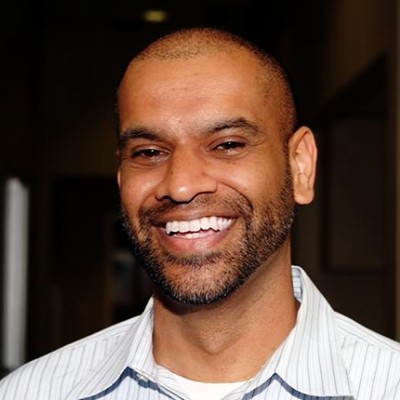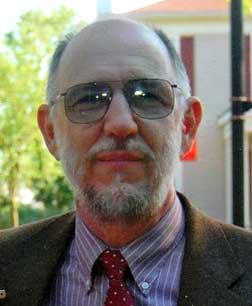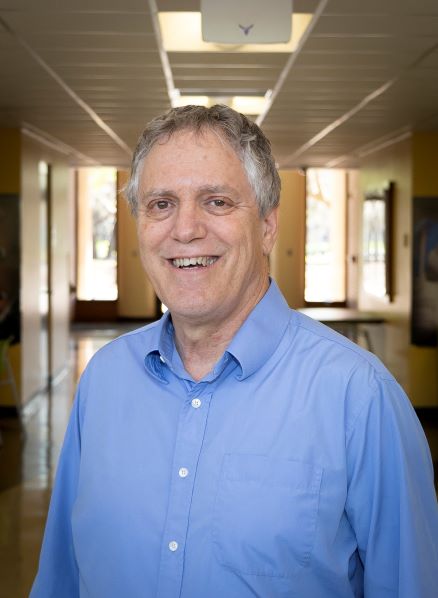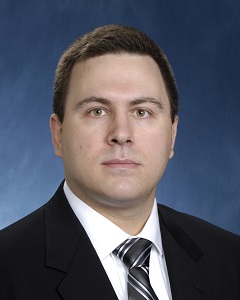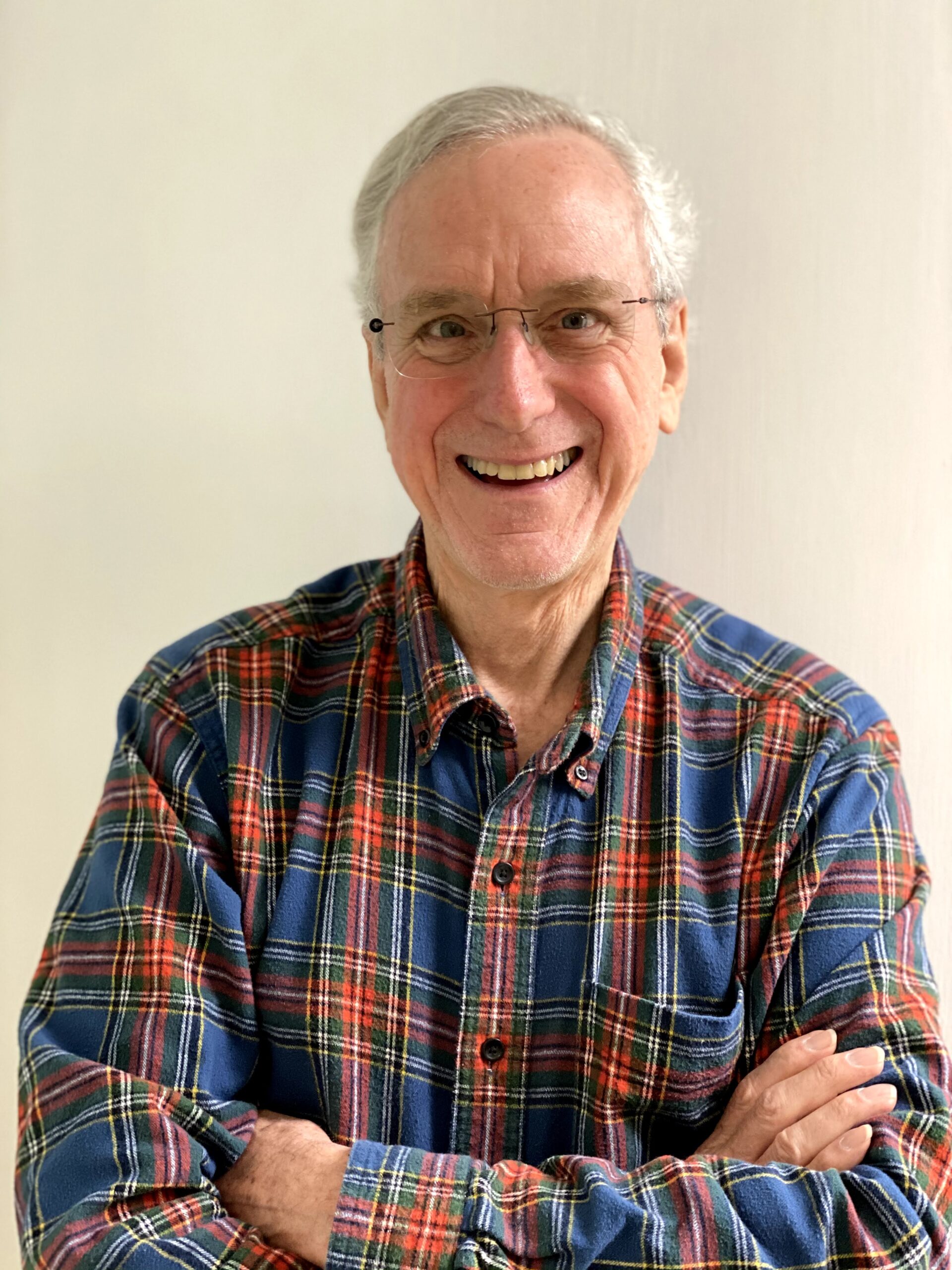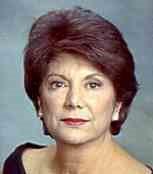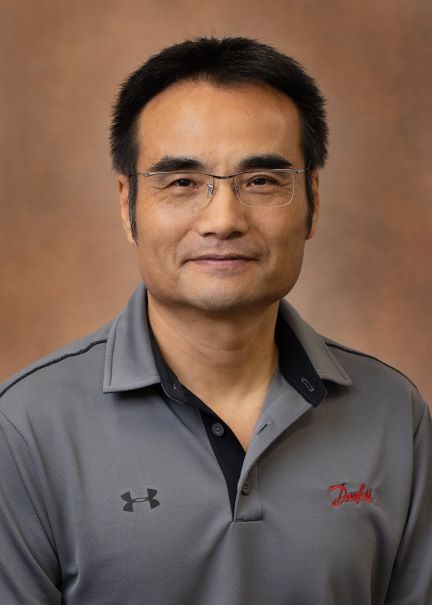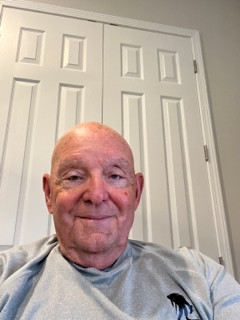| Sanjay Agravat is an engineer at Google in the Office of the CTO with a focus on Applied AI. He has over 20 years of industry and research experience with a focus on large-scale data science in biomedical, geospatial, and other scientific applications. Dr. Agravat holds a BS in Computer Science from Florida State University, an MS in Computer Science from Johns Hopkins University, a PhD in Biomedical Informatics from Emory University, and completed a Postdoctoral fellowship at Harvard Medical School in the field of Glycoinformatics. | ||
| Professor Baker’s first research was in theoretical computer science. His best known work is this area is related to the P=?NP question and polynomial-time relative computability. He has also published research in pattern matching and parsing algorithms, compilation techniques, and in real-time programming languages, scheduling and operating systems.Starting in 1979, Professor Baker became involved with the development of the the Ada programming language. A group he organized at FSU (including Professor Riccardi) produced one of the first validated Ada cross-compilers for embedded systems.
After the completion of the FSU/AFATL Ada compiler project, Professor Baker concentrated on problems connected with using Ada in real-time embedded computing applications, focusing on the Ada runtime environment, and how to produce systems that verifiably meet hard timing constraints. This work was supported by contracts from several sources, including the Boeing Companies, the U.S. Army (Fort Monmouth), and U.S. Navy (ONR, NRL/STARS-Foundations, NCSC). It has involved design, implementation, and testing of a series of runtime systems that are suitable for use in multiprocessor shared-memory environment, as well as the FSU Pthreads library. In 1991, as Domain Expert for the real-time systems and systems programming for the Ada9X Mapping-Revision Team, Professor Baker played a significant role in drafting the real-time systems and systems programming sections of the Ada 95 reference manual, which was adopted in 1995 as the international standard for the Ada programming language. Professor Baker directed a project at FSU to develop the multi-tasking runtime system for the Gnu NYU Ada 95 Translator (GNAT). This is believed to have been the first validatable implementation of Ada 95 tasking for a non-embedded system, and is probably the most portable, successful, and widely used of all Ada 95 implementations. Professor Baker subsequently directed the porting of the GNAT multi-tasking implementation to a variety of platforms, including the Java VM and RT Linux. Concurrent with his work on Ada, Professor Baker has done research on real-time scheduling, worst-case execution time prediction, and concurrency control. Some of this work was done in collaboration with graduate students. His contributions in this area include the Stack Resource Protocol (SRP), algorithms for scheduling sporadic and aperiodic tasks in a deadline scheduling environment, and techniques for analyzing the feasibily and schedulability of arbitrary sparadic task systems on multiprocessor platforms. Professor Baker has been active in software standards related to real-time operating systems and programming languages. Besides editing the POSIX Ada binding standards (IEEE Std 1003.5b-c), he worked with students to develop a portable implementation and a set of validation tests for these standards, with funds provided by the U.S. Department of Defense, Defense Information Systems Agency. From 1998 to 2002, Dr. Baker served as Chair of the Department of Computer Science at Florida State University. Under his leadership, the department implemented what may be the first ABET-accredited distance learning degree program in Computer Science, approximately doubled in faculty size, and more than doubled its external research funding. A part of this growth initiative was development of a research group and graduate educational program in information assurance, including computer security and cryptography. For this development, the department was recognized in 2000 as a Center of Educational Excellence in Information Assurance. Dr. Baker’s recent primary research interests are the analysis of real-time scheduling algorithms for multi-processors, and incorporating device drivers into real-time schedulability analysis. Dr. Baker retired from the Florida State University in December 2011. He was then employed as a Research Professor at the Florida Institute of Technology, from which was assigned to work as a Program Director in the Division of Computer and Network Systems at the National Science Foundation under the Intergovernmental Personnel Act, until December 2014. He retains a continuing relationship with FSU as Professor Emeritus, doing occasional teaching and supervision of research. |
||
| LAWRENCE O. HALL is a Distinguished University Professor in the Department of Computer Science and Engineering at the University of South Florida and the co-Director of the Institute for Artificial Intelligence + X. He received a Ph.D. in Computer Science from Florida State University (1986) and a B.S. in Applied Mathematics from Florida Institute of Technology (1980). He is a fellow of the IEEE, AAAS, AIMBE, IAPR, and AAIA. He received the 2021 Fuzzy Pioneer award from the IEEE CI Society. He received the Norbert Wiener award in 2012 and the Joseph Wohl award in 2017 from the IEEE SMC Society. He was the IEEE VP Publications 2021-2. He is a past President of the IEEE Systems, Man and Cybernetics Society, former EIC of what is now the IEEE Transactions on Cybernetics. He is on the editorial boards of the Proceedings of the IEEE and IEEE Spectrum. His research interests lie in learning from big data, distributed machine learning, medical image understanding, bioinformatics, pattern recognition, modeling imprecision in decision making, and integrating AI into image processing. He continues to explore un and semi-supervised learning using scalable fuzzy approaches. He has authored or co-authored over 100 publications in journals, as well as many conference papers and book chapters. His work has been cited over 40,000 times per Google Scholar with an H-index of 62. He did early work showing that unsupervised fuzzy clustering could be combined with a knowledge-based approach to segment brain tumors in an explainable manner. He has worked on scalable methods for fuzzy clustering and an evolutionary algorithm approach to optimizing fuzzy clusters. With labeled data, he has done work to learn good models of medical images from small data. He has also done work with imbalanced data. | ||
| Sean Miniclier is a Senior Manager, Engineering Management for the Space Systems Software department at L3Harris Technologies. He is a proud graduate of the Florida State University in 2001 with a B.S. in Computer Science. With over 21 years of experience, Sean has impacted a diverse range of Software Engineering including legacy distributed systems, service-oriented architectures, frontend and backend web development, image processing, agile development, networks, DevSecOps pipelines, embedded systems, space software payloads, and recently the flight audio software for the Artemis moon missions. He also shares a patent for a “System and Method for Processing Map Images”. | ||
| • Born and raised in north Florida. • Took my first programming class (Autocoder) at FSU in 1968 as a high school senior at Florida High. • 1976-1993 Microprocessor-based embedded control designer 1976 Developed 8080 microprocessor-based energy management system using Intel SBC-80/10 Single Board Computer 1978 Co-developed 8080 microprocessor-based key cutting and labeling machine using Intel SBC-80/20 Single Board Computer • 1993-2004 Co-founded Parks and Owenby Consulting, Inc. providing customized accounting systems and training. • 1994-2000 Co-founded Gadsden Community Network, Inc. (non-profit) to offer free dialup Internet service to residents of Gadsden County, supported by FSU’s SCRI and NSF. • 2002-2004 Coached FIRST Robotics team at Maclay School • 2005 B.S. Computer Science, FSU • 2005-2015 Taught Advanced Placement Computer Science and other classes at Maclay School in Tallahassee Professional Memberships • IEEE member for 47 years (Life Senior) • IEEE Computer Society member for 46 years (Life) • ACM member for 30 years (Life Senior) • Computer Science Teachers Association member for 10 years • Upsilon Pi Epsilon member |
||
| Kay Stephenson is Co-Founder, President & CEO of Datamaxx Applied Technologies, Inc., a leading technology company focused in the law enforcement, criminal justice, public safety and homeland security markets. Over its 31 year history, Datamaxx has been recognized for its innovation in technology, outstanding customer service and support, and a 2022 Top Women-Led Business in the State of Florida. The Company provides its solutions to over 70% of the criminal justice and homeland security markets with such distinguished accounts as the U.S. Air Force, U.S. Department of Justice, Judiciary of Guam, the Commonwealth of Puerto Rico, the U.S. Virgin Islands, Louisiana State University, Houston Astros, Tennessee Titans, Dow Chemical Company and many others. Kay currently serves on the Board of the FSU Research Foundation and the SAC of St. John Paul II Catholic High School. | ||
| Dr. Lin Sun is the Vice President of Engineering & Technology of Danfoss Turbocor, a pioneer and leading manufacturer of the oil-free centrifugal compressors in HVAC industry. Danfoss Turbocor developed the world first industrial scale oil-free compressors with the distinguished technologies of integrated variable speed drive, active magnetic bearings, digital control, and centrifugal compression. Lin has over 36 years experiences in Mechatronics and embedded systems. Prior to Danfoss Turbocor, Lin has 10 years academic experiences in Tsinghua University in Beijing, and the University of Melbourne in Australia. |
||
| I have a BS and MS from FSU, and a Phd from the University of California, San Diego. I worked for the US Navy for 20 years. Then in private industry. My last position was as an Executive Director at Eli Lilly Corporation. I was responsible for the companies global computing systems. | ||
Search FSU
Close SearchDEPARTMENT OF COMPUTER SCIENCE
College of Arts and Sciences


